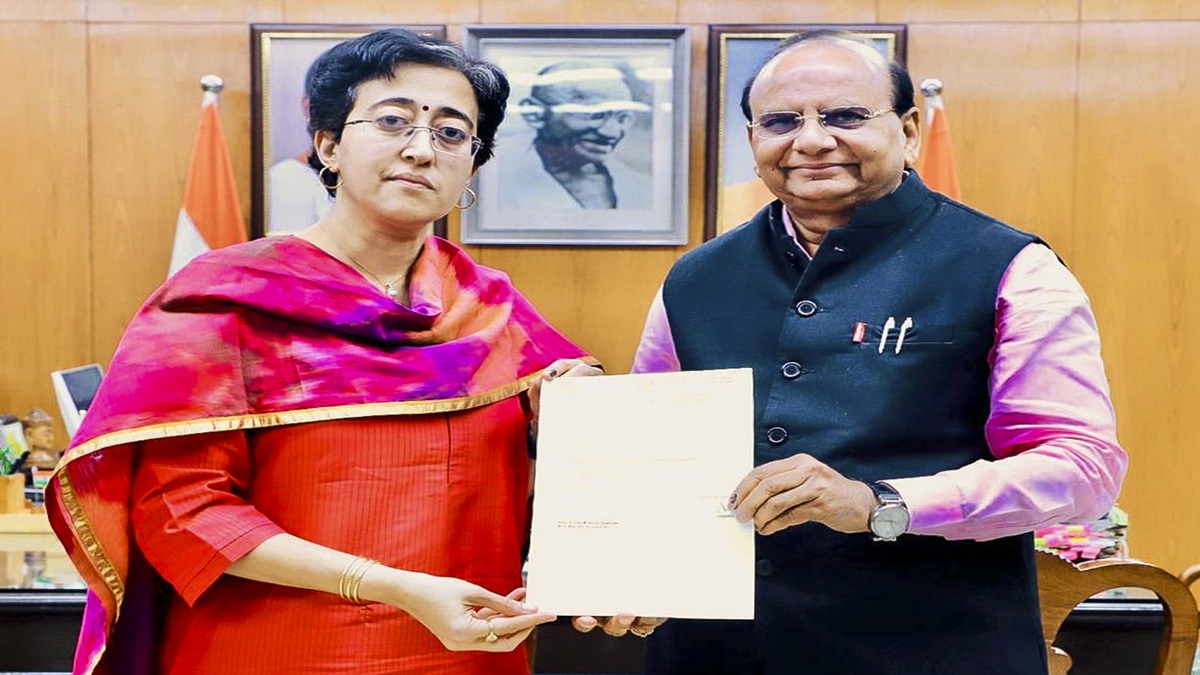 |
|
The political landscape of Delhi witnessed a significant development with the resignation of Atishi, a prominent member of the Aam Aadmi Party (AAP), following the party's electoral setbacks. The resignation, however, wasn't accepted without pointed commentary from Lieutenant Governor (LG) V.K. Saxena. Saxena's remarks, reportedly delivered during Atishi's visit to Raj Niwas to formally submit her resignation, have ignited a fresh round of political sparring in the capital. Saxena's accusation that the AAP government failed to adequately address the pollution of the Yamuna River, coupled with his pointed observation – 'Aapko Yamuna Maiyya Ka Shaap Laga Hai' (You are cursed by Mother Yamuna) – reveals a deep-seated dissatisfaction with the AAP's environmental record. This statement, while potentially interpreted as a culturally-infused critique, underscores the seriousness of the environmental challenges facing Delhi and the political implications of perceived failures to mitigate them. The use of such a phrase, rich with cultural and religious connotations, highlights the potency of the symbolic power behind the Yamuna River within the context of Delhi's political and social fabric. It simultaneously conveys dissatisfaction and casts the blame for the Yamuna's plight squarely on the AAP's doorstep. The specific wording chosen by the LG also strategically frames the issue within a wider discourse of cultural responsibility and environmental stewardship.
Beyond the symbolic language, Saxena's criticism focuses on the concrete lack of progress in cleaning the Yamuna. The implication is that the AAP government, despite having been in power for a considerable period, failed to implement effective strategies to improve the river's ecological health. This assertion points to a larger debate surrounding the effectiveness of government policies and their implementation. Critics might argue that the LG's statements are politically motivated, aiming to capitalize on the AAP's recent electoral performance and highlight perceived failures in environmental governance. Alternatively, supporters of Saxena might contend that his criticism is justified and that the AAP's record on environmental issues falls short of expectations. This clash of perspectives underscores the ongoing tensions between the Delhi government and the LG's office, a characteristic feature of the political dynamics in the national capital region. The differing viewpoints also raise questions about accountability and transparency in governance, particularly concerning high-profile environmental concerns.
Furthermore, Saxena's broader criticism extends beyond the Yamuna to include the issue of air pollution. His assertion that he had previously written several letters advocating for constructive steps to reduce air pollution, with minimal tangible results, points to a systemic issue of inter-governmental coordination and effective policy implementation. This aspect of the situation highlights the bureaucratic complexities involved in addressing such multifaceted problems. The lack of substantial progress on air pollution, an issue of critical importance for public health and the environment, only strengthens the LG’s critique of the AAP’s handling of environmental concerns. This criticism further underscores the larger debate regarding the need for improved inter-agency cooperation and more effective strategies to tackle the complex environmental challenges faced by Delhi. The lack of concrete action, according to Saxena, indicates a potential failure of both planning and execution on the part of the AAP government, leading to a persistent environmental crisis. The ongoing debate on air and water pollution underscores the urgent need for effective collaboration between governmental bodies to alleviate these pressing environmental issues that impact the health and well-being of Delhi's citizens.
Source: Delhi LG Saxena tells Atishi while accepting her resignation: 'Apko Yamuna Ka Shap Laga hai'
